14 Toronto Artists You Need to Know About
Looking to expand your playlists? Discover the eclectic sound of Toronto with these 14 Toronto artists from diverse backgrounds and genres.
Each artist brings their own unique spin on the genre they tackle and explore their own personal history in their music, representing the creative diversity that we see in the streets of Toronto. These artists were featured in Luminato’s music docuseries Guided By Starlight , highlighting local Toronto artists who are deeply involved in their community and are steadily on the rise.
Kristi Lane Sinclair

As modern rock continues to expand and evolve, it is artists like Kristi Lane Sinclair who are at the vanguard. The Toronto-based singer/songwriter draws equally from her Haida/Cree heritage and her love of both grunge and classical music to create a sound that challenges long-held preconceptions, while telling her own unique story.
Raised in the wilds of British Columbia, Sinclair released her first self-produced independent album, I Love You , in 2010, followed in 2013 by The Sea Alone. In 2015, she released her third collection Dark Matter , which earned Best Rock Album honours at the 2017 Indigenous Music Awards. The making of the album was also documented in a six-part series called Face The Music , which aired on the Aboriginal Peoples Television Network (APTN).
On her latest five-song EP, The Ability To Judge Distance , Sinclair gets even closer to the bone in exploring themes of love and anger.
OKAN
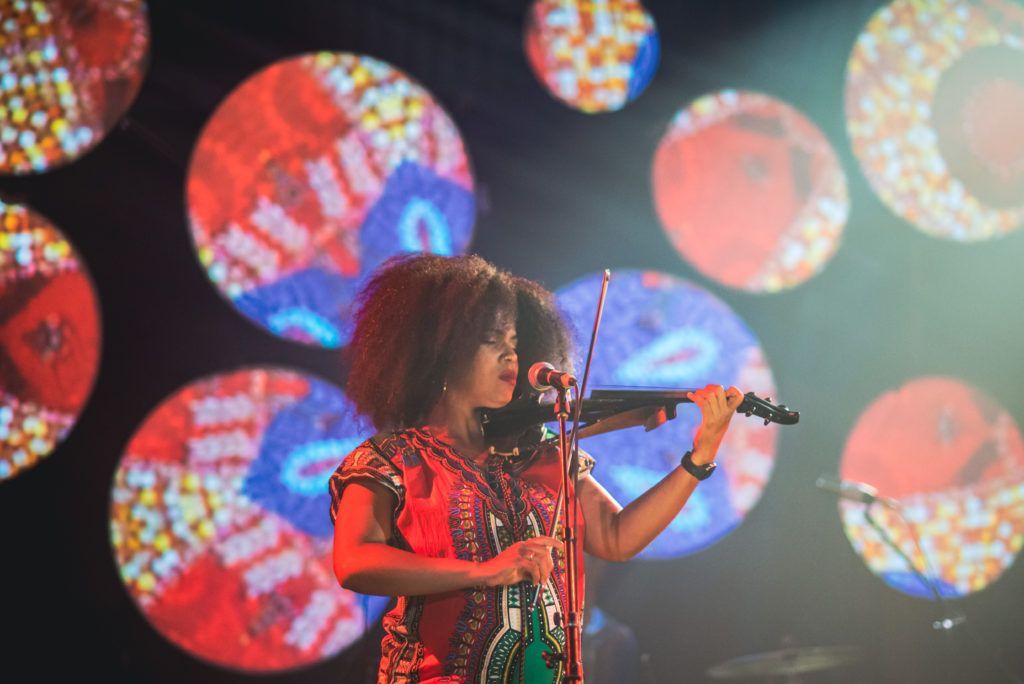
JUNO Award winning group OKAN takes their name from the word for heart or soul in the Afro-Cuban religion of Santeria and fuses Afro-Cuban roots with jazz, folk and global rhythms in songs about immigration, courage and love.
Embracing genres that have not historically fostered women artists outside of the role of singer, OKAN co-leaders, composers and multi-instrumentalists Elizabeth Rodriguez and Magdelys Savigne bring a fresh perspective to Latin and world jazz fusion through their powerful harmonies, incredible musicianship and potent lyrical content.
Zaki Ibrahim
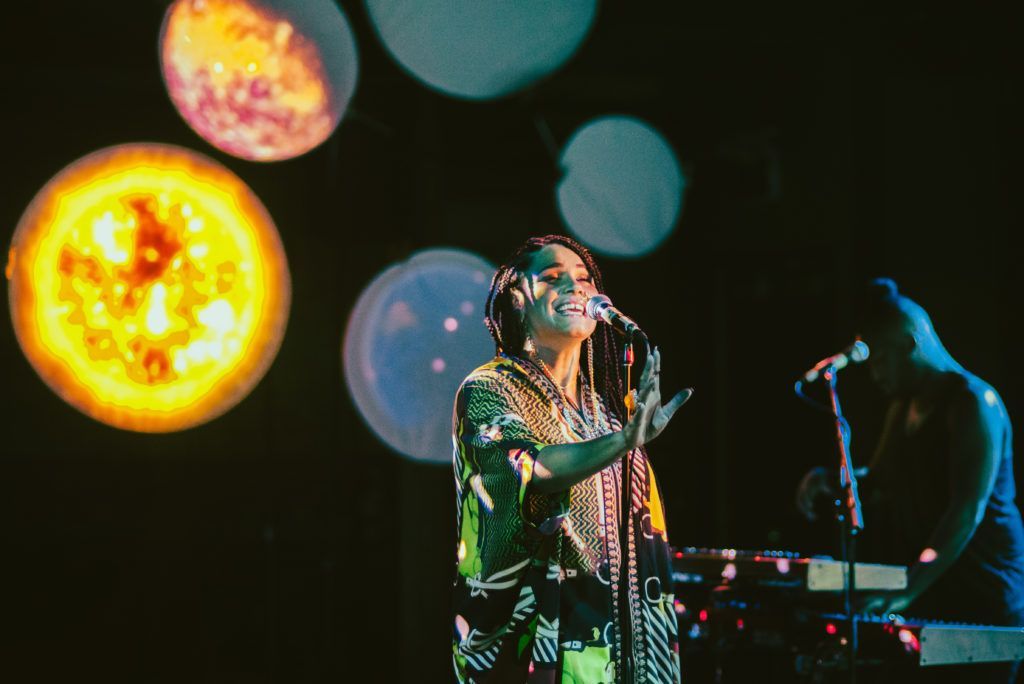
Described as “a retro-Afrofuturist vision sending listeners on a journey through 40 years of electronic music” (Nuvo), Zaki Ibrahim ’s music brings elements of spoken word, hip hop, soul, house and 70’s pop together, filtered through the prismatic and often contradictory lenses of personal, historical and scientific relativities. Even the concept of diaspora seems to fall short of capturing the vivid vibrational multitudes of Zaki Ibrahim’s scope.
On stage, Ibrahim delivers theatrical, intricate configurations of bodies and ideas built on a contrast of sharp precision and untethered joy. Ibrahim aims to find space for spontaneity within the parameters of structure; in the same way that her music explores non-linear models of time and space, Ibrahim’s performances are designed with fluidity and recombination in mind.
SATE
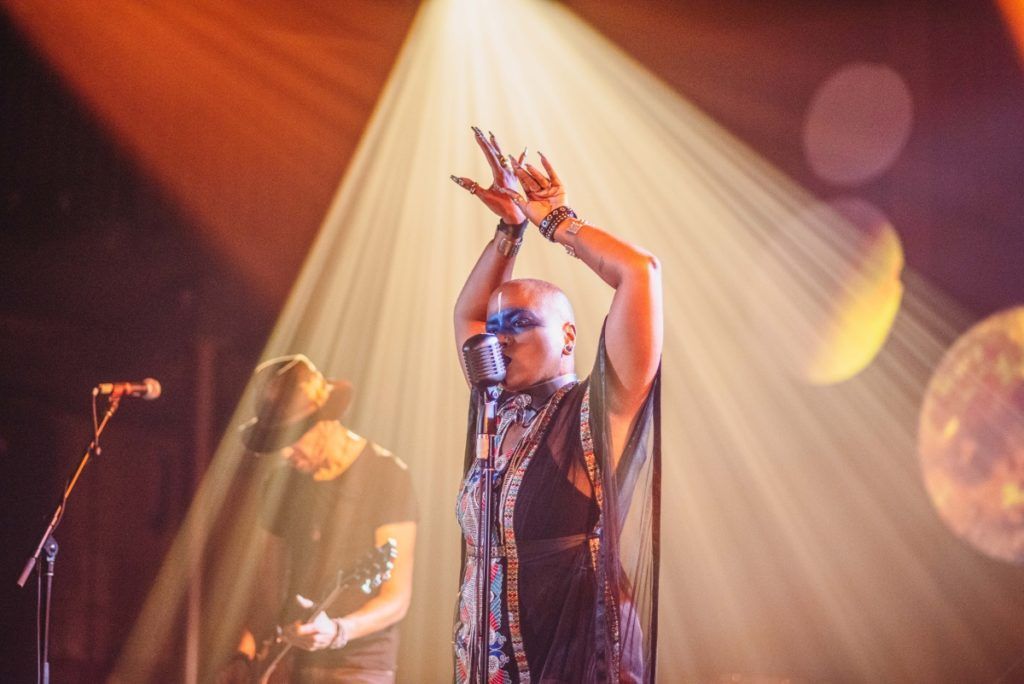
SATE [definition]: To satisfy fully.
The Toronto vocalist and songwriter leads a dynamic band combining blistering hard rock with gritty blues. The empowering messages embedded in her music, and her soul-shaking live show, have quickly built SATE
’s reputation as an artist impossible to ignore. Take it from MusicforLunch.com: Her music leaves you exhausted but leaves a fire burning in your soul that wasn’t there before.
SATE’s music is the natural result of the live experience, and the culmination of a lifetime spent fully immersed in music of all forms and shades. As the daughter of Canadian blues and jazz pioneer Salome Bey, SATE learned at the feet of countless music legends that passed through Toronto during her childhood. She soon found her own voice by adding the sounds and attitudes of punk, and hard rock that shaped her own identity, setting her upon her journey.
TiKA
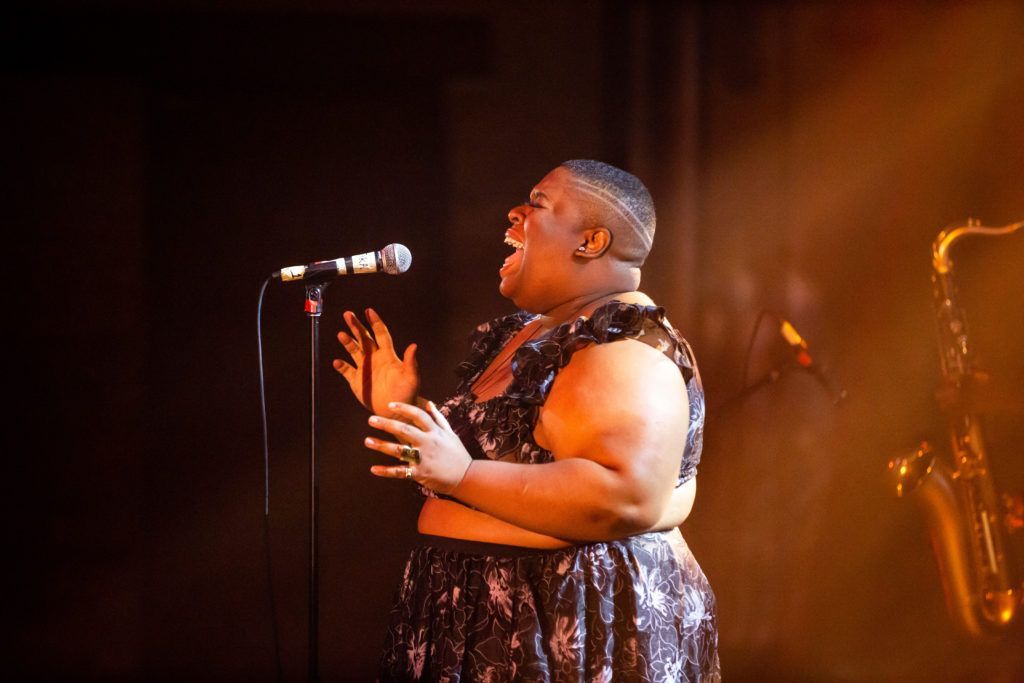
TiKA ’s motivation is to communicate with our universal language – music. She draws from the legacy of Black Queer women of the 1990’s: Meshell Ndegeocello, Tracy Chapman, Dionne Farris and Diana King, artists who she observed to have “rawness, eloquence, timelessness and grace in what they were emoting through music”.
Anywhere But Here is set to illustrate similar qualities as those artists she admires.
Embracing the genre rightfully coined as “futuristic nostalgia,” TiKA’s compositions offer “ethereal sounds that wrap around you, reminding you of other memories”. The vibe remains current, and like the artist herself, evolving. With production work from friend and fellow artist, Casey MQ, a duet with R&B artist Desiire, the album’s themes address deeply personal relationships to ones inspired by TiKA’s Jamaican roots to others that are sonic representations of conversations with the self.
Säye Skye

Säye Skye is a transgender Iranian rap artist and LGBTQ rights activist at the forefront of a new hip-hop movement that has its basis in social consciousness.
With astonishing originality, his experimental raps challenge deep-rooted stereotypes of misogyny, discrimination, and queerphobia. Säye Skye’s work is distinguished by both its mystery and infectious energy. Using the poetic language of Farsi, each song elicits an instant audience connection through its passion and pulse. From its unpredictable flow and hypnotic rhythms to its evocative lyrics, Säye Skye’s work invites listeners to question their current state of being.
Säye Skye is the first person in Iran’s history to dare sing about the LGBTQ community, their existence and their protracted struggle for freedom. In 2009, he recorded and released his first single in Iran, Säye Yek Zane Irani (Shadow of an Iranian Woman). As a queer artist, he was consequently put at great risk for singing and advocating for LGBTQ rights through his music. In 2010, Säye Skye was forced to leave his home and seek asylum in Turkey, where he was granted refugee status, and moved thereafter to Toronto in March 2011.
Bruno Capinan
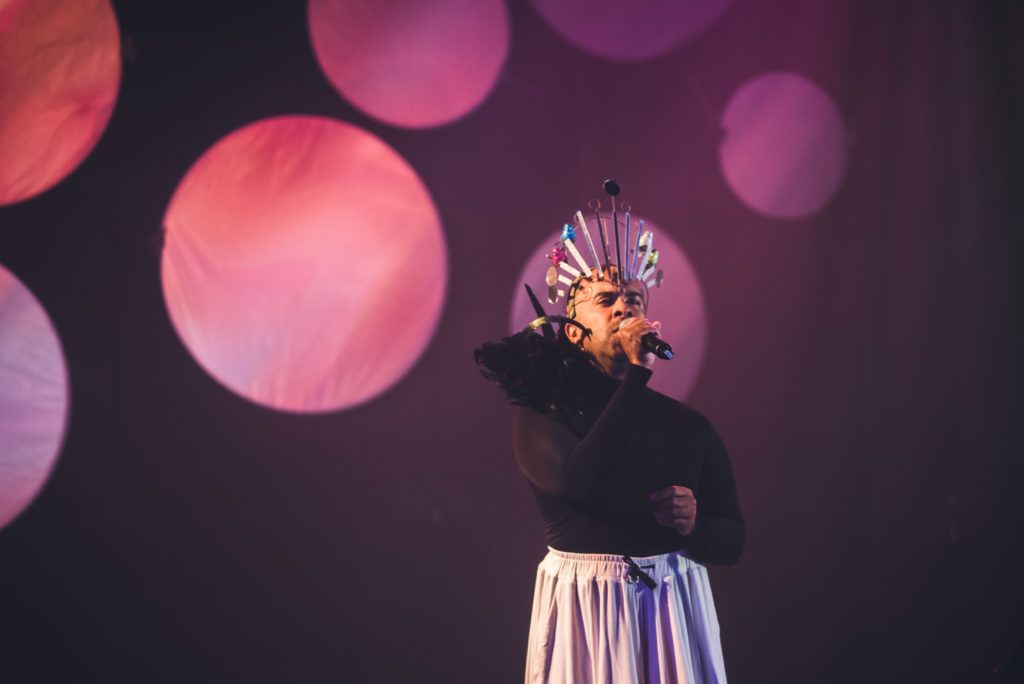
“Acrobatic, sensual, both angelic and profane” is how The Guardian describes Brazilian-born, Canadian singer-songwriter Bruno Capinan. His voice resonates with the vibrant legacy of a hybrid culture. Born in Salvador da Bahia, the epicentre of Afro Brazilian music, the internationally acclaimed artist has released five albums in his decade-long music career and performed to audiences in Canada, Japan, Brazil, Argentina, and the United States.
Bruno Capinan gained international recognition with the release of “Divina Graça” (2016), including reviews in the French newspaper Libération, as well as Brazil’s largest publications OGlobo, Folhade São Paulo, and Rolling Stone Brazil.
Baobá

From the roots of South American soil, the seed of Baobá started to sprout back in 2016, when three friends felt the need to perpetuate their cultural expressions through music. Documenting history by their hands with creativity, empowerment, and original sounds, Baobá portrays the resilience rooted in Southern lands. After the joining of a talented bassist in 2020, Baobá became a percussive quartet that explores the sounds and cultures of their Latin background bringing traditional rhythms in a unique formation.
The queer drumming quartet is composed of Toronto’s top female percussionists, featuring Y Josephine, Anita Graciano and Mari Palhares from Venezuela, Colombia and Brazil respectively, as well as multi-instrumentist Gio from Venezuela. Together they demonstrate the perfect synchronicity when they unite drums with melody, mixing Samba with Salsa, Cumbia with Maracatu, and many other cultural rhythms.
Lenka Lichtenberg
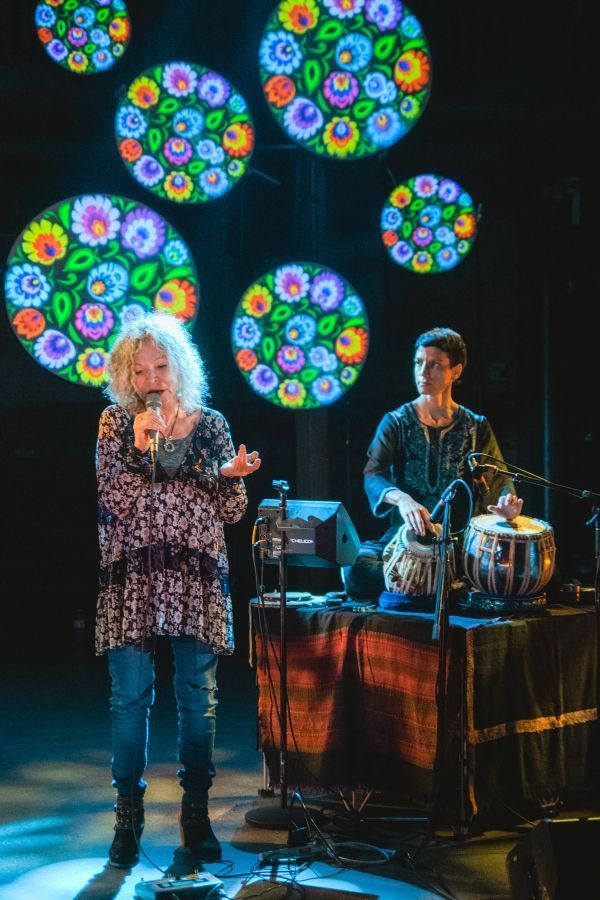
Lenka Lichtenberg was born in Prague, Czechoslovakia. Her mother was a child survivor of the Holocaust. Lenka was not aware that she was Jewish until the age of 10, and did not know her family’s history until circumstances forced the revelation. The petite, blond singer spent her childhood years in the immensely popular musical theatre Semafor, as child star sidekick to the icon of Czech anti-establishment culture, Jiří Suchý, with whom she recorded several hits that remain popular to this day. She studied classical music at the Prague Music Conservatory, specializing in voice.
While long known for her work in the realm of Yiddish music, Lenka’s latest album marks her first foray into celebrating the music of her country of birth. Masaryk , described as “breathlessly beautiful” in the Dutch press (Moors Magazine), revisits some of the classic Czech, Moravian and Slovak folk songs that permeated Lenka’s early childhood – and provided much of her introduction to folk music.
Navz-47
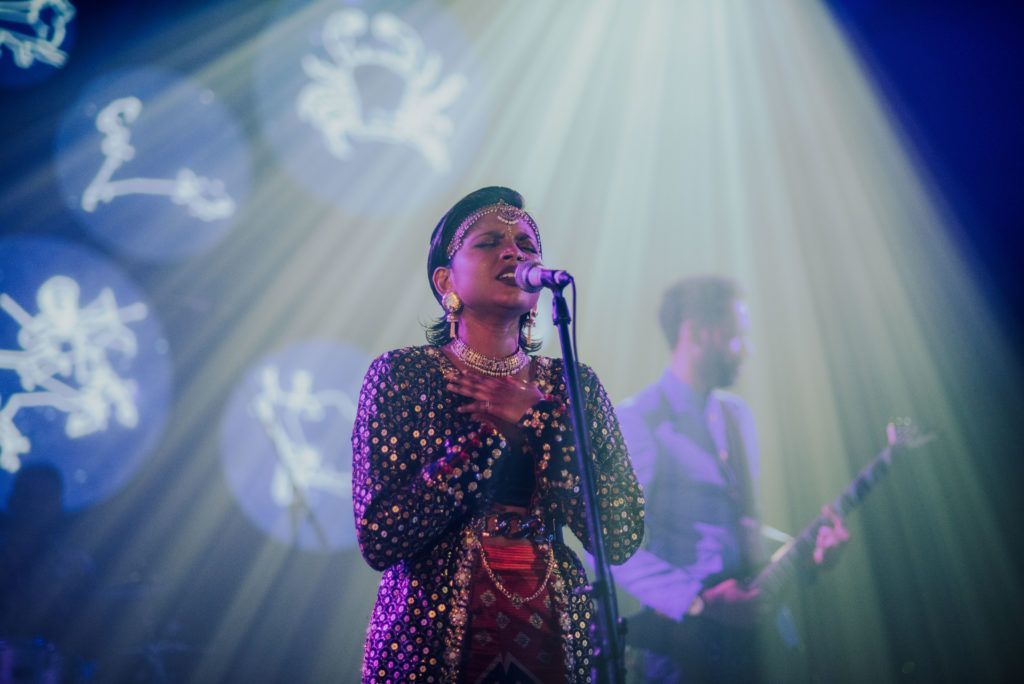
Naveeni Philip, aka Navz-47 , started from the somewhat micro community of Tamil Canadians to become a global singer and rapper. Alongside hip-hop diaspora voices such as Cartel Madras, Rolex Rasathy and more, Navz-47 garnered attention first for her song “Kaathadi” in late 2018 and followed it up in June this year with the raucous “Pattasu,” which even has a hilarious music video to boot.
While she’s based in Toronto, Navz-47 is unwavering in using Tamil as her preferred language while singing, and we’ll likely hear more of that on her forthcoming debut album, Fresh off the Boat.
HEX

Formed at Girls Rock Camp Toronto in 2014, HEX is a post-punk riot grrrl trio who has played alongside inspiring female-fronted acts such as Lido Pimienta, Hooded Fang, and Amyl and the Sniffers. Through poetic verse, chugging guitar, and howling vocals, HEX meditates on the experience of growing up as young women in an urban landscape. Within their songs, they confront sexual assault, gender-based violence, and all that taboo.
RAW Taiko Drummers
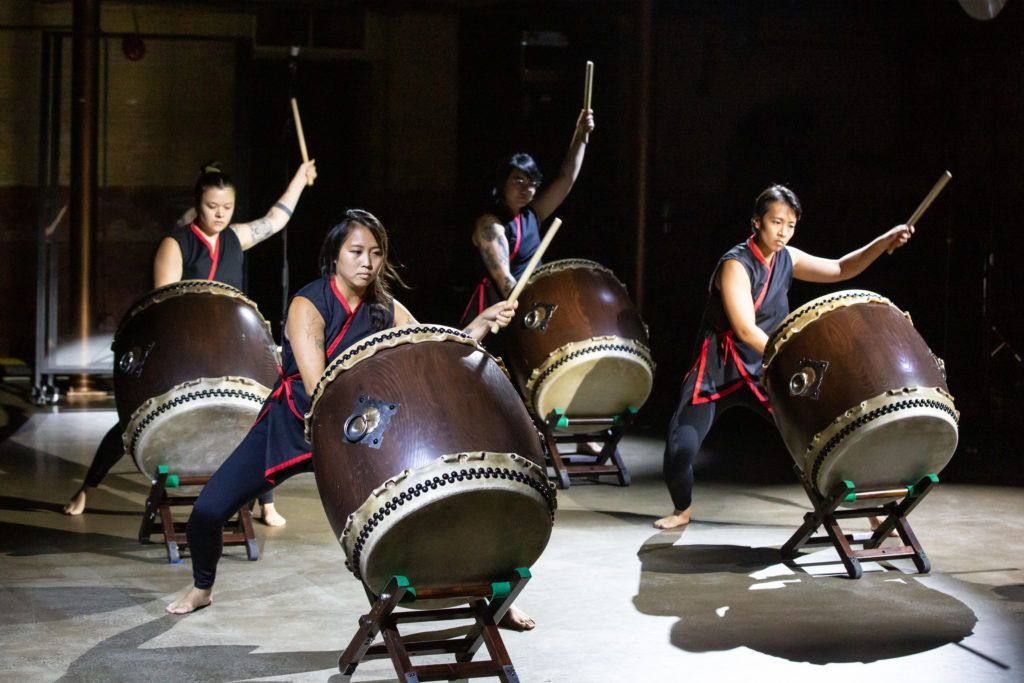
Raging Asian Womxn Taiko Drummers (RAW) is a Toronto-based performing arts ensemble made up of East and Southeast Asian womxn. Formed in 1998, they carry on the diasporic Taiko tradition that grew out of Asian American and Asian Canadian mobilization in the 1960s and 1970s.
One of the few all-Asian, all-womxn Taiko drumming groups in the world, RAW exists as a critical response and challenge to both systemic and internalized oppressions. RAW plays large taiko drums as creative resistance for social change, carving space for self-expression, education, and community building.
Illuminato Cypher
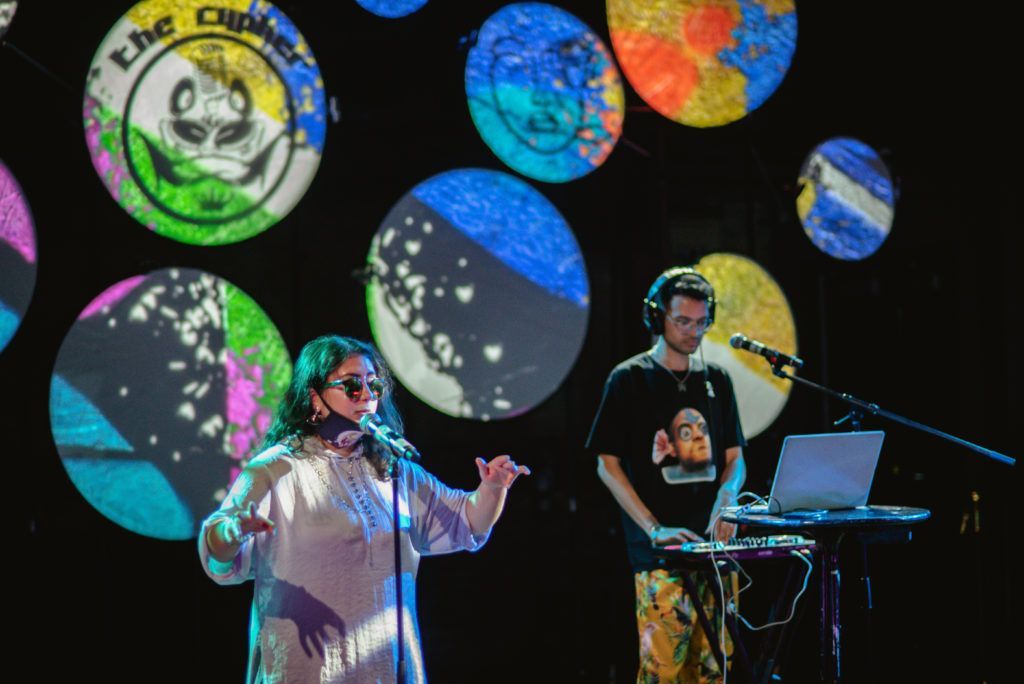
Illuminato Cypher is a Toronto hip-hop group curated by Eyeda Sophia and Maxhole and featuring Pharah K.
Eyeda Sophia has roots in both spoken word poetry and hip-hop. Her style is a marriage of flow, wit and signature vocals.
Since her debut, Eyeda has performed at TEDxUofT, NXNE, Manifesto, Bloom Festival, Bricks & Glitter, Long Winter, the AGO, the Royal Ontario Museum and venues all across the country.
Toronto Kiki Ballroom Alliance
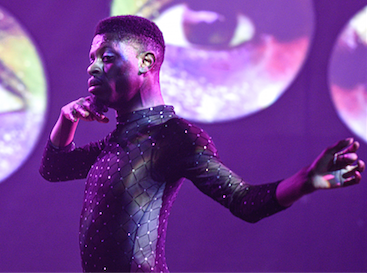
The Toronto Kiki Ballroom Alliance is a for-youth-by-youth grassroots organization that started out of the need to bring ballroom arts into the community. Ballroom culture, which originated in Harlem, started in 1967 through pageantry and performance that’s glamourous, fun, engaging, and affirming. The Kiki community takes the magic and impact of ballroom and brings it to their community which is: LGBT+ Black & Brown youth and allies.
Although the TKBA youth are mostly black LGBT youth, their community is diverse. Citizens and newcomers, cisgender and transgender, queer and questioning, binary and non-binary, young and old all make up the fabric of their community.
They are not a homogenous community, but they are a community full of unique individuals with unique experiences and lives.
Want to stay in the loop of all things arts and culture in Toronto? Follow us on socials, and sign up for our newsletter for monthly updates!
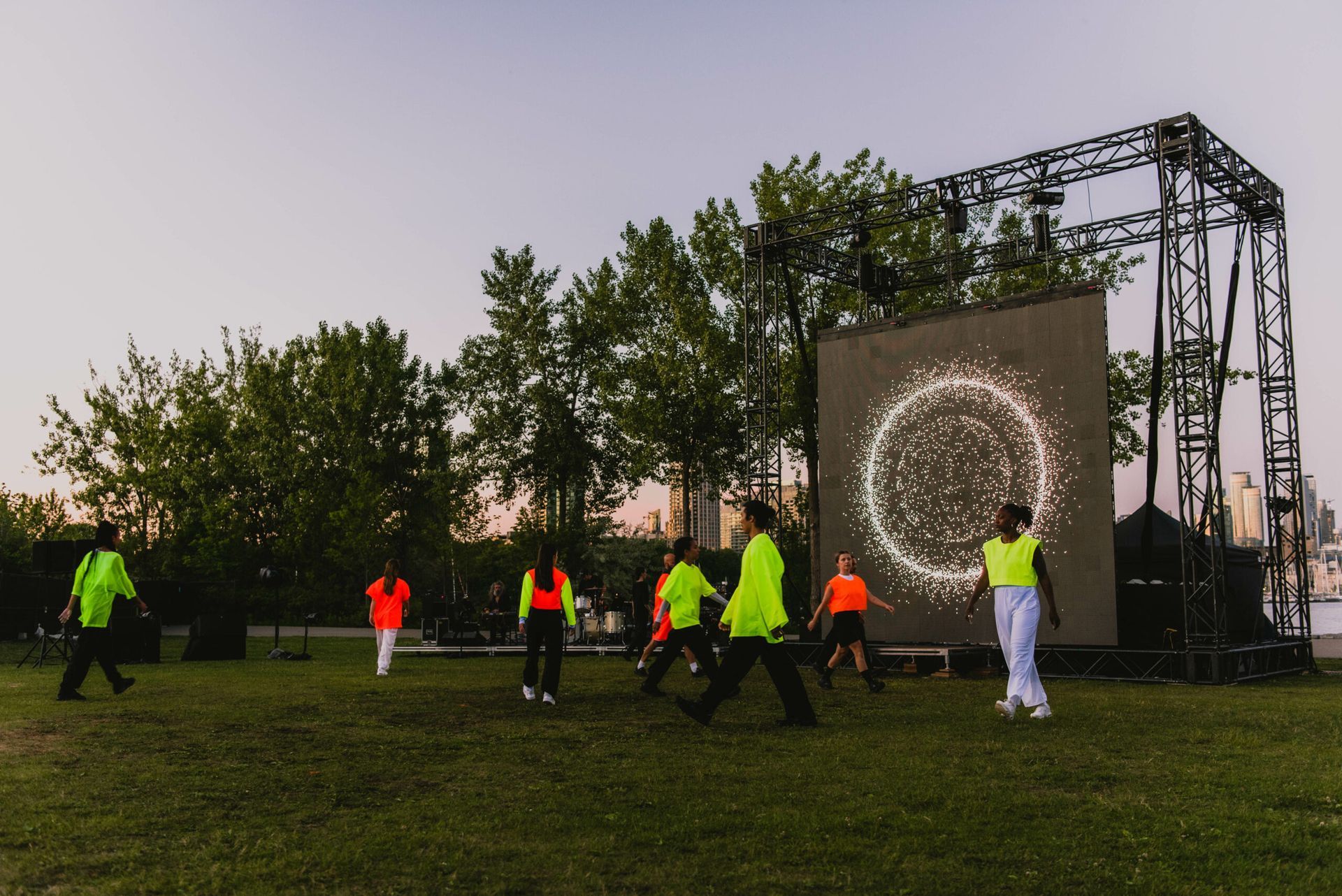



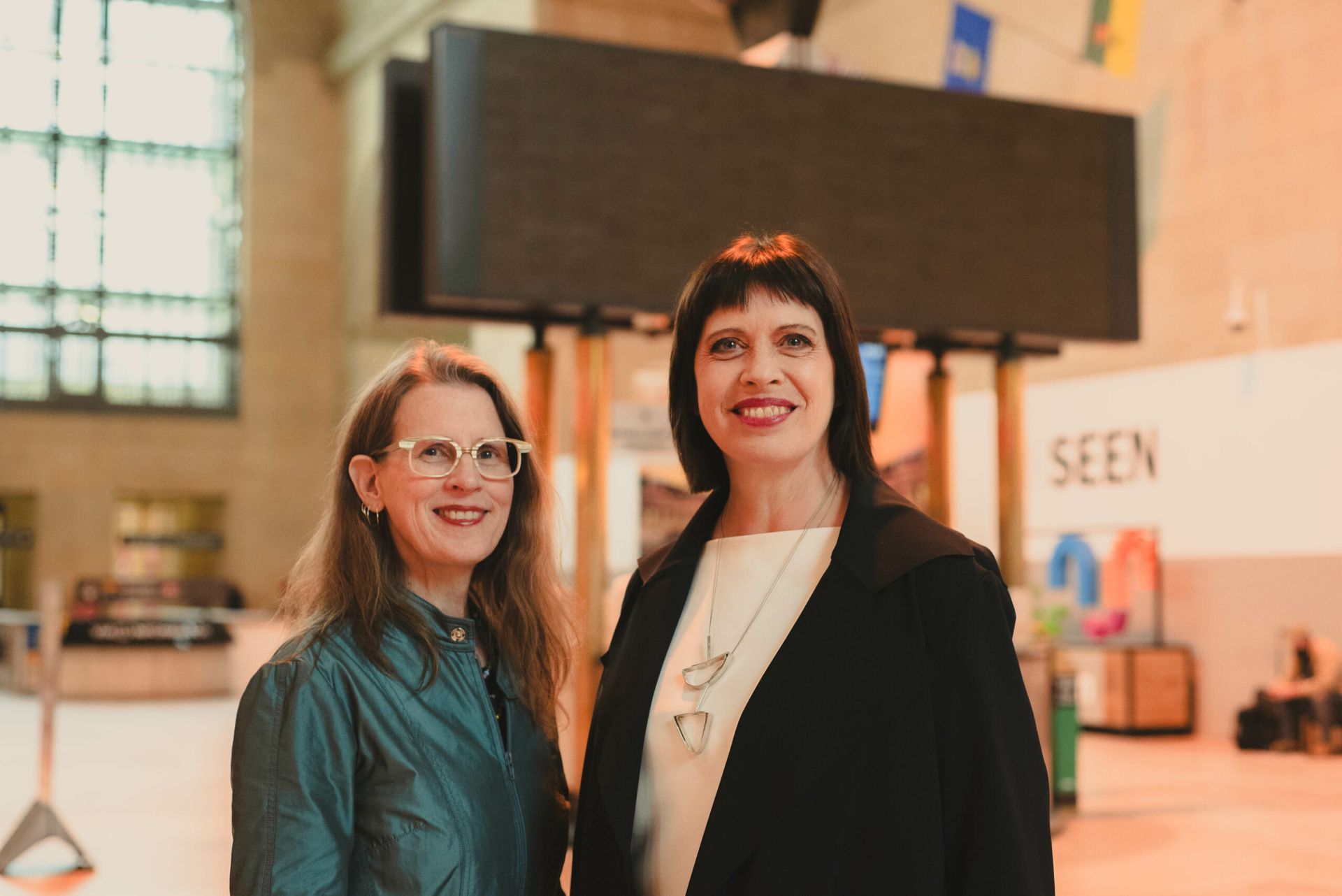
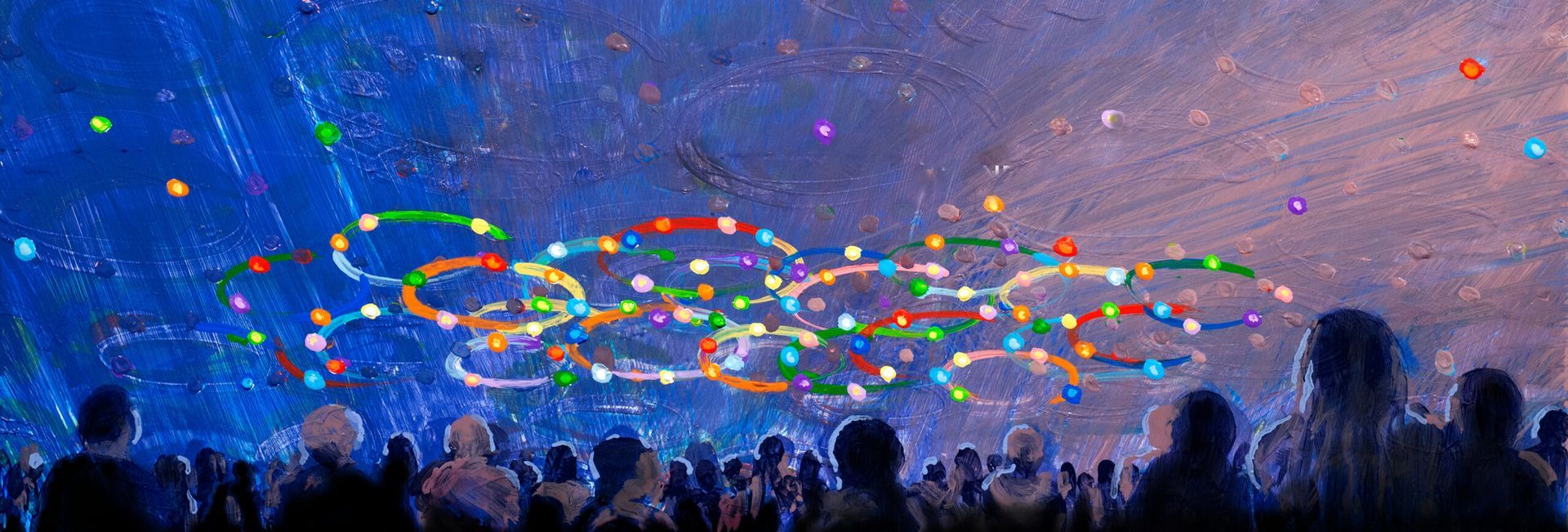
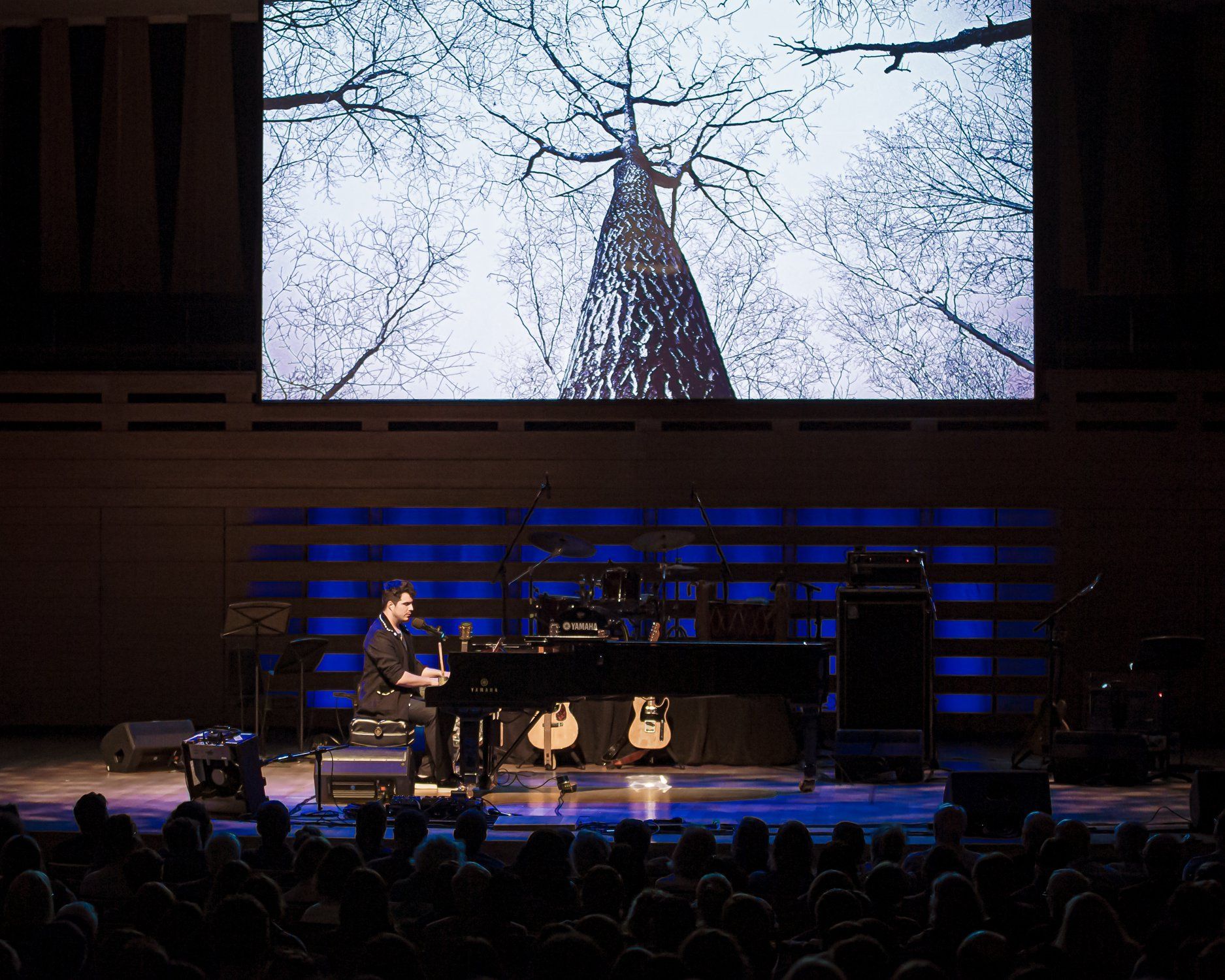



© 2025 Luminato Festival Toronto, All rights reserved.
Privacy Policy
|
Terms and Conditions
